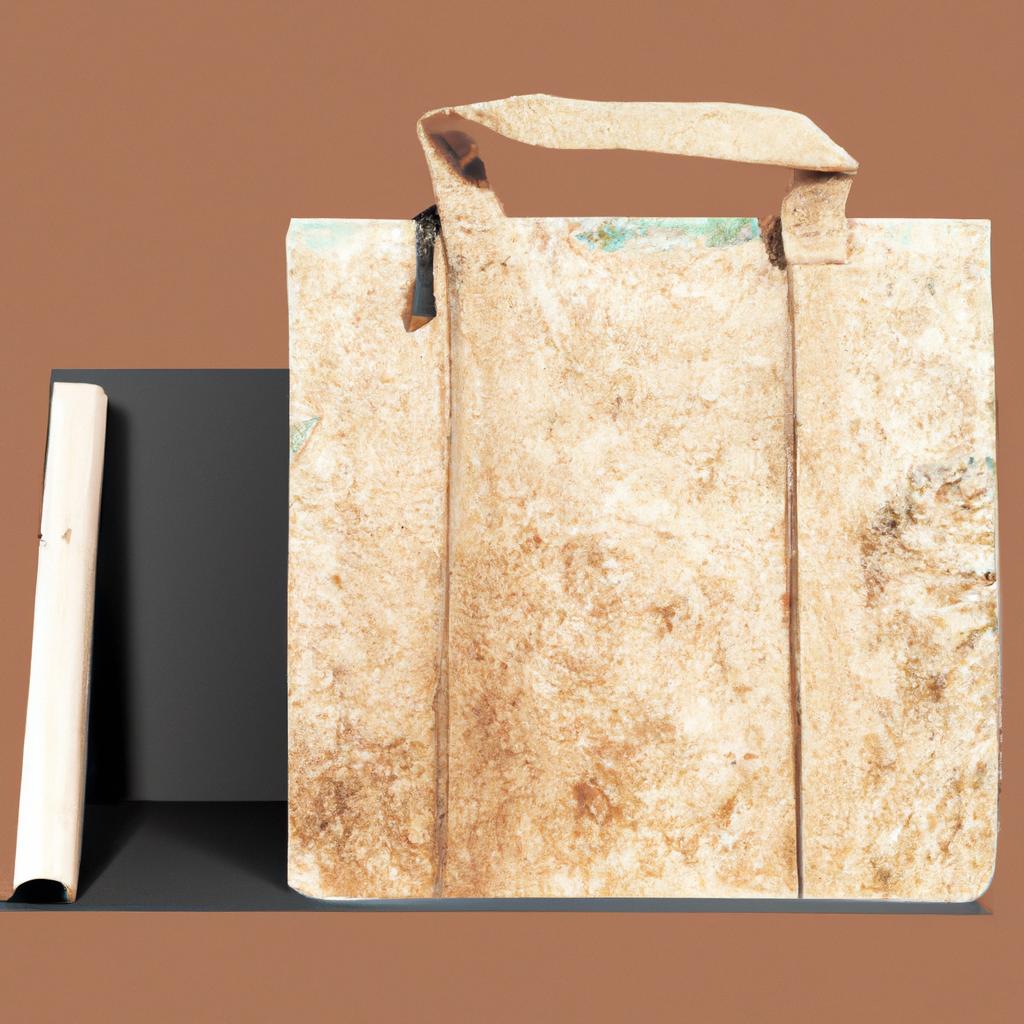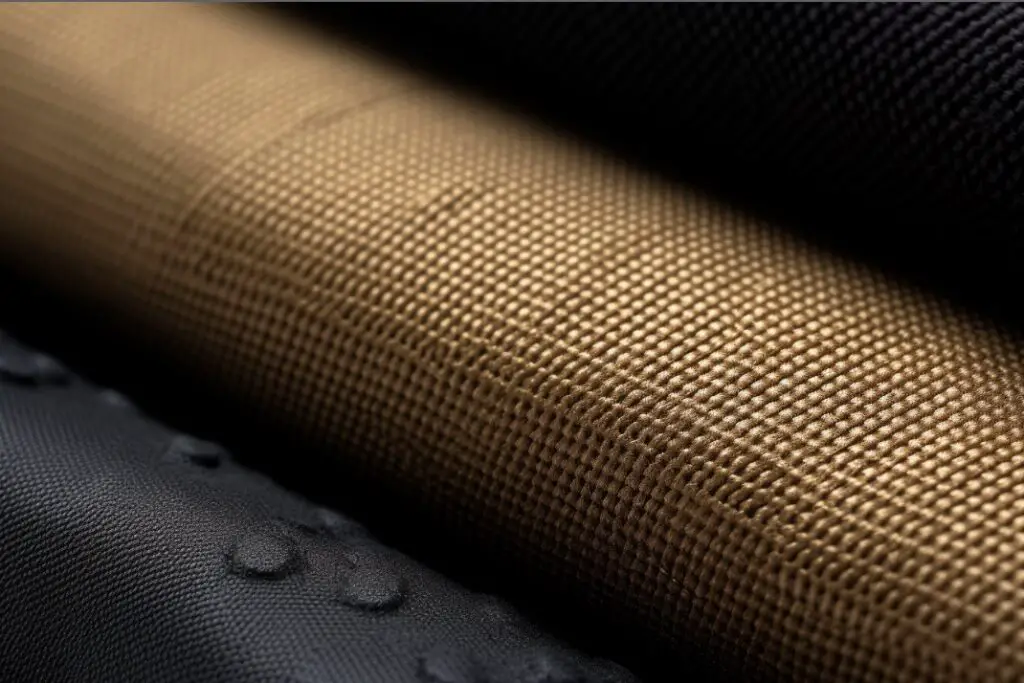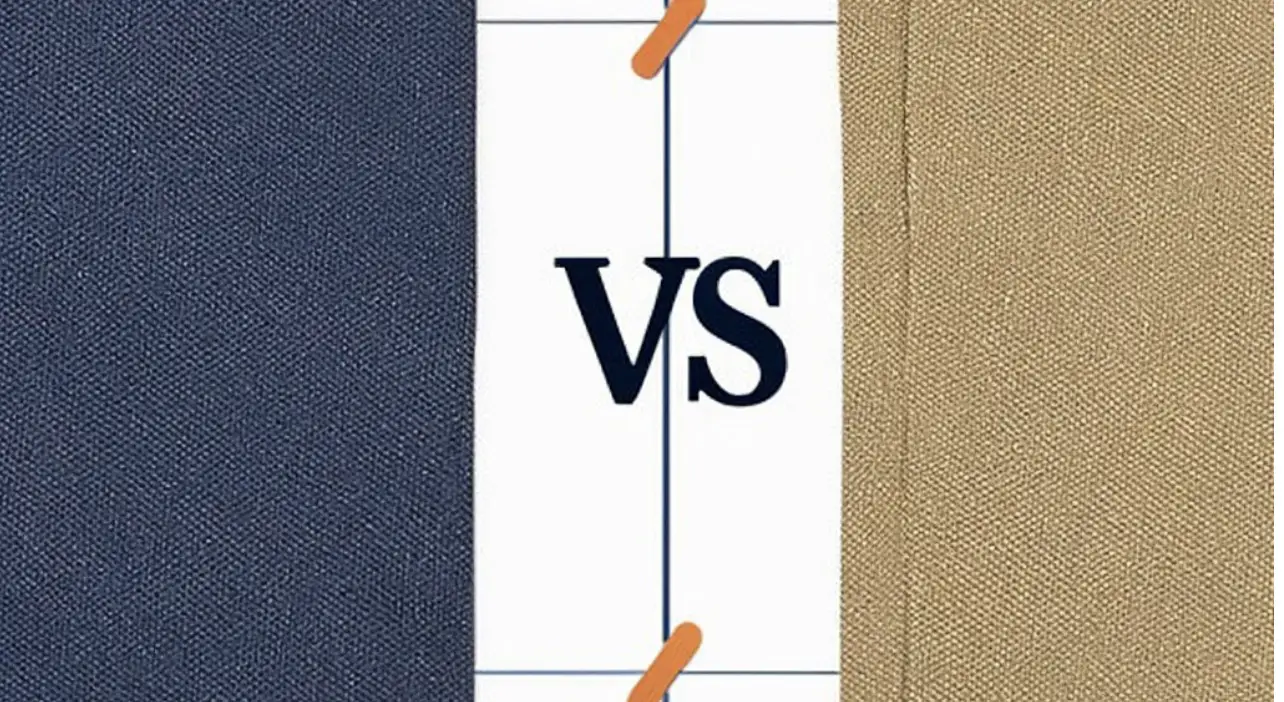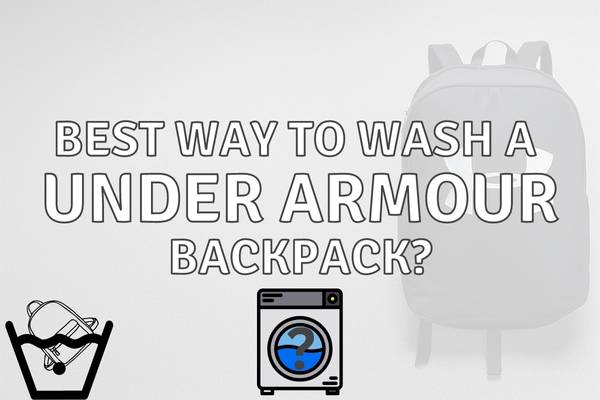As someone who has spent years working with a variety of materials, I have often found myself in conversations about the merits of different fabrics.
In this blog post, we will explore the properties, uses, and benefits of both materials to determine which one comes out on top.
In the showdown between canvas and cordura, the best choice depends on your specific needs and preferences. While canvas is a more eco-friendly and breathable option, cordura is more durable and resistant to water and abrasions.
One debate that frequently comes up is canvas vs cordura. Both materials are popular choices for a range of applications, from outdoor gear and military equipment to bags and shoes.
What is Canvas?
History and Origins
Canvas is a heavy-duty, plain-woven fabric that has been used for centuries in a variety of applications. It is traditionally made from cotton, but can also be made from other natural fibers like linen or hemp. Canvas gained popularity as the go-to material for sails on ships due to its durability and resistance to the elements.
Properties and Benefits
Canvas is known for its sturdiness and versatility. It is a breathable material, allowing air to circulate through the fabric. This makes it an excellent choice for applications where comfort and ventilation are important, such as clothing and upholstery.

Some key benefits of canvas are its breathability, eco-friendliness, and durability.
Common Uses
Canvas is used in a wide range of products, including:
1. Tents and outdoor shelters
2. Bags and backpacks
3. Shoes and clothing
4. Furniture upholstery
5. Art canvases
What is Cordura?
History and Origins
Cordura is a brand name for a type of high-performance, synthetic fabric that is well-renowned for its durability and resistance to abrasions, tears, and scuffs. Developed by DuPont in the 1920s, Cordura was initially used as a tire cord material. It was later adapted for military applications and eventually found its way into commercial products.
Properties and Benefits
Cordura is made from nylon, which gives it a high strength-to-weight ratio. This material is known for being resistant to abrasions, water, and UV rays, making it a popular choice for outdoor gear and military equipment.
Cordura is also available in varying weights and weave styles, allowing for customization based on the intended use of the product.
Key benefits of cordura include its durability, water resistance, and versatility in terms of weight and weave options.
Common Uses
Cordura is used in a variety of products, such as:
1. Military gear and uniforms
2. Outdoor gear like backpacks, tents, and sleeping bags
3. Motorcycle jackets and protective clothing
4. Luggage and bags
5. Footwear
Comparing Canvas and Cordura
Cordura fabric and canvas are both popular materials used in various applications, including bags, backpacks, clothing, and outdoor gear. Here are some pros and cons of each:

Cordura Fabric:
Pros:
- Durability: Cordura fabric is known for its exceptional durability. It is highly resistant to abrasions, tears, and scuffs, making it ideal for rugged outdoor use or high-impact activities.
- Lightweight: Despite its durability, Cordura fabric is relatively lightweight, allowing for comfortable use and reducing the overall weight of products.
- Water Resistance: Cordura fabrics often have water-resistant properties or can be treated to enhance their water resistance, making them suitable for outdoor gear and apparel.
- Quick Drying: Cordura fabric tends to dry relatively quickly, making it useful in wet environments or during water-based activities.
Cons:
- Stiffness: Cordura fabric can be somewhat stiff, especially when compared to canvas. This stiffness may affect the drape and comfort of clothing items made with Cordura.
- Less Breathability: While Cordura fabrics can be designed with breathability in mind, they generally offer less natural airflow compared to canvas.
- Limited Color Options: Cordura fabric is often available in a narrower range of colors compared to canvas.
Canvas:
Pros:
- Natural Look and Feel: Canvas fabric has a natural, rustic appearance and a soft feel, making it aesthetically pleasing and comfortable to wear or use.
- Breathability: Canvas is typically more breathable than Cordura fabric, allowing for better airflow and reducing the chances of sweat buildup.
- Flexible and Drapeable: Canvas fabric tends to be more flexible and has a better drape than Cordura, offering increased comfort and ease of movement.
- Wide Color Variety: Canvas is available in a broad spectrum of colors, providing more options for customization.
Cons:
- Less Abrasion Resistance: Compared to Cordura, canvas fabric is generally less resistant to abrasions and tears, making it more prone to wear and damage over time.
- Absorbs Moisture: Unlike some Cordura fabrics, canvas is not inherently water-resistant and can absorb moisture, making it less suitable for wet conditions or environments.
- Heavier: Canvas fabrics are often heavier than Cordura fabrics, which may be a disadvantage when weight is a concern, such as in backpacking or hiking gear.
It’s important to note that the specific properties and performance of Cordura fabric and canvas can vary depending on the specific weave, treatment, and quality of the materials.
It’s always a good idea to consider the intended use and requirements of your project when choosing between these two fabrics.
Durability
When it comes to durability, cordura has a clear advantage over canvas. Its abrasion resistance and ability to withstand harsh conditions make it a popular choice for heavy-duty applications. While canvas is also durable, it may not hold up as well in extreme environments or under heavy use.
Water Resistance
Cordura is inherently more water-resistant than canvas due to its synthetic composition. Canvas can be treated to become water-resistant, but this may compromise its breathability.
Weight
Cordura is generally lighter than canvas, making it a more suitable choice for applications where weight is a concern, such as backpacking or hiking gear.
Breathability
Canvas has the edge when it comes to breathability. Its natural fibers allow for better air circulation, making it a more comfortable option for clothing and upholstery.
Eco-Friendliness
Canvas, made from natural fibers, is generally more eco-friendly than synthetic materials like cordura. Additionally, canvas can be more easily recycled or biodegraded at the end of its life.
Making the Right Choice
In the debate between canvas and cordura, the best choice ultimately depends on your specific needs and preferences. If durability, water resistance, and lightweight materials are your top priorities, cordura is likely the better choice. However, if breathability, eco-friendliness, and a more natural feel are more important to you, canvas is the way to go.
Conclusion
When comparing canvas vs cordura, it’s essential to consider your specific needs and preferences. Here are ten facts about these two materials to help you make an informed decision:
1. Canvas is made from natural fibers like cotton, linen, or hemp.
2. Cordura is a high-performance, synthetic fabric made from nylon.
3. Canvas is breathable, allowing for better air circulation.
4. Cordura is more durable, resistant to abrasions, water, and UV rays.
5. Canvas is generally heavier than cordura.
6. Cordura is available in various weights and weave styles.
7. Canvas can be treated for water resistance but may lose breathability.
8. Cordura is often used in military gear, outdoor equipment, and protective clothing.
9. Canvas is more eco-friendly and biodegradable than cordura.
10. Both materials are popular choices for bags, shoes, and outdoor gear, but the best choice depends on your priorities and intended use.
FAQs
Is Cordura stronger than canvas?
Yes, Cordura is generally stronger than canvas due to its high abrasion resistance and durability. It is often used in outdoor gear, military equipment, and workwear because of its toughness.
What is the difference between Cordura and canvas?
Cordura is a type of nylon fabric that is known for its high durability and resistance to abrasion, while canvas is a heavy-duty cotton fabric that is also known for its durability but is not as resistant to abrasion as Cordura.
What is a substitute for Cordura?
There are several materials that can be used as substitutes for Cordura, including ballistic nylon, Kevlar, and Teflon-coated nylon.
How strong is Cordura fabric?
Cordura fabric is known for its exceptional strength and durability, as it is made from high-tenacity nylon fibers that are woven together in a tight, dense weave. It is resistant to abrasion, tearing, and punctures, making it a popular choice for outdoor and military gear, backpacks, and luggage.
Is Cordura a waterproof canvas?
Cordura is not a canvas material, but a type of fabric that is often coated with a waterproof layer to make it water-resistant. However, the level of water resistance can vary depending on the specific Cordura product and its construction.
What is stronger than Cordura?
There are several materials that are stronger than Cordura, such as Kevlar, Dyneema, and Spectra. These materials are known for their exceptional strength and durability, making them ideal for use in high-performance gear and equipment.




